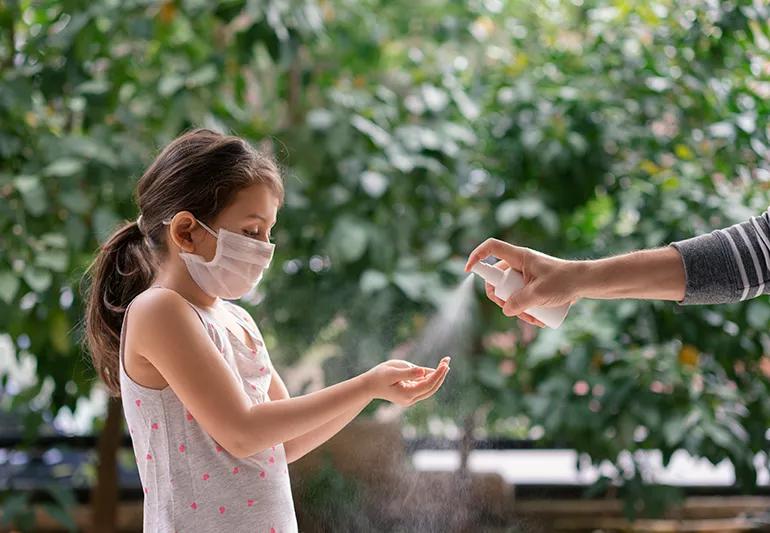The short answer from experts

Image content: This image is available to view online.
View image online (https://assets.clevelandclinic.org/transform/fe691d02-0399-4dcf-81fd-1dc16b8028b2/CC-HE-how-easy-to-transmit-coronavirus_jpg)
Father squirts antibacterial hand sanitizer in daughter's hands.
A: Unfortunately, it’s very easy to transmit the novel coronavirus that causes COVID-19.
Advertisement
Cleveland Clinic is a non-profit academic medical center. Advertising on our site helps support our mission. We do not endorse non-Cleveland Clinic products or services. Policy
A study of the outbreak that occurred on the Diamond Princess cruise ship showed that an infected person would cause an average of 2.28 more cases. That’s fewer than the measles (12 to 18 cases) but higher than the seasonal flu (0.9 to 2.1 cases).
More importantly, viral shedding (the process of spreading the virus) can occur up to five days before symptoms even appear. And asymptomatic shedding (spreading the virus even if symptoms aren’t present or before they appear) may account for up to 60% of cases.
Transmission of the virus occurs via droplets that are expelled through the mouth or nose, like mucous or saliva, and can be easily spread through actions like sneezing and coughing. These viral particles can land directly on the mucous membranes (mouth, nose, eyes) of another person.
Indirect transmission is also possible, either from droplets landing on the skin of another person who then touches his or her mucous membranes or from touching a surface that has been infected. That’s why you should wash your hands frequently and avoid touching your face as much as possible.
The virus can live on surfaces for one to several hours, though how long the virus survives depends on the surface material. For that reason, surfaces that are touched frequently should be cleaned with antiviral solutions at least every 24 hours.
Advertisement
— Infectious disease specialists Ryan Miller, DO, and Kristin Englund, MD
Advertisement

Sign up for our Health Essentials emails for expert guidance on nutrition, fitness, sleep, skin care and more.
Learn more about our editorial process.
Advertisement
If you've had COVID-19, you may think you don't need to be vaccinated. Think again.
Don't lose sight of the other health threats children face
The short answer from an infectious disease specialist
Here’s how to shop safely
The short answer from an infectious disease specialist
Wearing gloves doesn’t give you perfect protection against COVID-19
Safety protocols for donation amid coronavirus
Most recommended precautions center around minimizing bruising or swelling
Type 2 diabetes isn’t inevitable with these dietary changes
Applying a hot or cold compress can help with pain
Pump up your iron intake with foods like tuna, tofu and turkey